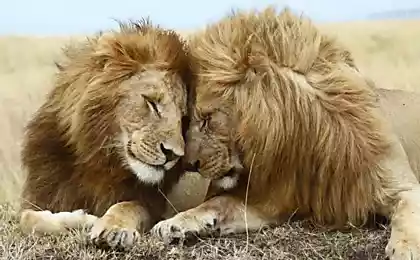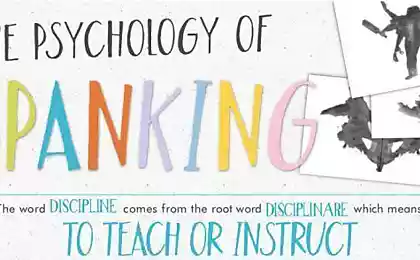571
Aggression and boundaries: 3 criteria that distinguish violence from aggression
Most likely I am not the first who undertakes to write on this, quite common in the practice of working with clients, the topic. We really often face this theme in the work, and no matter it is individual therapy, group or two-day thematic group on sexuality.
Maybe it's some kind of socio-cultural reality in Russia, where aggression tabourets where people find it difficult to feel your own space and boundaries, because for so long we had everything in common, many lived in communal apartments and shared with each other last, and nonconformist behavior severely punished.
But, however, is not so much what was done to us, what is important is how we are now with this cost.
In this article I want to clarify the meaning of aggression, feelings which it is accompanied, and its relationship with borders.

The concept of aggression
First, let's understand, that such aggression.
Etymologically, the aggression comes from the Latin ad-gressere, which means "movement to"the movement at a meeting to another, movement in the direction of the contact. And he will be otherwise, if none of the participants will not take the liberty to approach?
The same root for the word aggression are the words progress and regressthat also characterize the movement. It is important to note that aggression is not a feeling, and act, accompanied by feelings.
Why do I focus attention on the fact that aggression is the action? The fact that in our and many other cultures, aggression is a negative connotation, i.e. we are accustomed to believe aggression is something negative, furthermore, often under aggression understand violence, cruelty. And this is bad, therefore aggression is also to be impossible. Here's the first social taboo! Meanwhile, the word "violence" comes from the Latin violare, which means "force, acting force". Feel the difference? Thus: aggression does not equal violence.
Here I want to give an illustration and comments from the book of Brigitte Martel "Skusenosti, love and Gestalt".
Martel identifies three criteria that distinguish violence from aggression:
1. The power and the impotence/omnipotence
"Some types of violence may be associated with the experience of omnipotence, which can be expressed through the formula: "if I want, I'll take the other person agree or not." Or, on the contrary from impotence, then one is able to hit, to destroy, because he can't get what you want or because you ignore it and he has nothing to lose.
In this case, the basis of motivation to the act of violence is not the desire to get something, but rather an attempt to Express his frustration, impotence, rage. While power enables to meet the other person to meet and to manifest around him, not destroy him."
2. Frames, borders
"The second criterion of distinction of cruelty and aggression for the relationship to the frames (borders) in which the action is carried out, namely the social laws and rules governing interpersonal relationships. Brutality always goes beyond the rules, aggressiveness may manifest itself in respect of the framework".
3. Contact
"The third criterion is related to the notion of contact. In corrosive action there is awareness of the existence of the other and possible meeting at that time, as violence turns the other person into an object that should be destroyed and, thus, it leads to the breakdown of relationships".
This diagram illustrates the difference between aggression and violence. It is obvious that these are two different directions of the vector, the first of which leads to contact and establish relations, the second to their destruction.
In addition, I will cite the words of Margaretta Spagnolo, Lobb from her book "Now-for-then in psychotherapy,"on the significance of anger in the human touch:
"Aggression expresses great love for others and desire relationships with them, similar to how the kid dismantle the toy apart, to study it, or like Michelangelo's anger was beaten with a hammer on the knee sculpted image of Moses asking him "Why aren't you talking?". It is impossible to love another if you can not reach it its transforming curiosity".
Emotions that accompany aggression

Often aggression is associated with negative emotions. We say we don't like aggression, bearing in mind that we don't like, when we are irritated, angry, angry. And here I want again to separate aggression from the emotions that are called negative, removing in between the equal sign, as aggression is not always accompanied by negative feelings, it can also be a sign of interest, curiosity, desire.
In their work and life I often have to rehabilitate feelings, especially if they are conditionally negative spectrum. We used to consider irritation, anger, negative anger, although it is the same feelings as everyone else. They are not always pleasant to experience while they are socially unapproved, taboo, and can be banned from childhood.
"Good kids, good and not angry, do not swear and do not argue with elders." The child may receive such messages from parents, directly or indirectly, except for the manifestation of the negative feelings it can shame, and shame is very heavy to carry. And then he is forced not to show these feelings to get a vital mother's love and the favor of others.
In consequence of these feelings can be suppressed or hidden behind some kind of reasonable, convenient for the surrounding mask, locked in a body, but a spontaneous manifestation of the movements that accompany these feelings may be limited, until the full loss of their amplitudes. The “bad” part is alienated, the person loses or greatly complicates his access to it. But feelings don't cease to appear. It's more like a good mine at bad game, and as a result, brings a lot of inconveniences in life.
Alienation of their own “negative” parts leads to incongruent behaviour, violation of the integrity and prevents the contact. It deprives people of the opportunity to defend their interests and simply say "no."
Moreover, suppression of conditionally negative feelings and pulls the suppression of the positive. Retention of feelings takes an enormous amount of life energy and the man eventually feels extinct, exhausted, joyless. In addition, the suppression of strong emotions may lead to the emergence and development of serious mental diseases.
If "negative" feelings we don't need and interfere, then why nature has created such feelings?
It would be so great if all around were kind, gentle, affectionate and was never angry, then definitely the world would be filled with love, there would not be conflict, and people permanently experienced joy and happiness.
The absence of such a pattern is reasonable to explain the imperfection of our world.
Nevertheless, feelings are very important to us alarm function, it is our helpers, even if they are unpleasant for us. They help us to better understand themselves, their needs, the situations in which we find ourselves and the actions needed in these situations to take. For example, we will not delight the situation in which we are attacked or beaten. Similarly, we get angry when we impose what we want, when we are being manipulated, when violating our borders.
Protecting "negative" feelings, I do not condone the uncontrolled outbursts and impulsive urge to unleash all his anger on the first thing that came to hand.
Examples of such behavior can often be seen on the street when you accidentally someone abusive, and receive a strong and inappropriate response like that you blame for all the troubles this man. This is due to the fact that unexpressed on time and at the relevant address anger builds up. In this case the person is angry or offended by the whole world, and “flies” all this grandeur without guilt.
Another example is "righteous" anger, which a person loses his nature and ready to destroy everything around. Anger, for many thousands of years used to organize large-scale bloodshed justified on religious, ethnic or other idea formulated by George. Orwell in the book Animal farm: "All animals are equal but some are more equal than others".
No matter the color of it's skin, the shape of the skull or our religion. This manipulation of the unconscious, animal part of our psyche. Yeah, we really saved the archaic structures of the brain, such as those that have animals, but that does not mean that we are animals who can only reflexively respond to external stimulus. We are endowed with consciousness and hence the possibility of awareness and regulation of our senses, and the ability to take responsibility for actions.
The other extreme — the now popular position of absolute calmness and tranquility, which is traditional, mostly Eastern, spiritual practices and teachings. They claim that to feel anger is “bad”, destructive, and that it is better to think positively. Here we are talking about a high level of awareness, when a person can choose feelings to the point of involvement in their experience. But taken out of context and incorrect interpretation of the message may lead to displacement of anger.
Awareness and expression of feelings

As I said above, it is important to be aware of their feelings. In doing so, we can help the body. Any feeling born in the body in the form of a pulse and is accompanied by biochemical process. This biochemical surge, bodily sensation turns into emotion, and she in turn — in action. Incorrectly recognized impulse or emotion can lead to a false reaction, which once again does not meet the needs.
Some people alienate their anger and assign it to other people, imagining that other people are mad at them or that it is others and not they themselves, evil.
Others prefer to get angry at the whole situation, without risking to openly show anger in the other person, fear of losing relationship with him.
Another way is to direct your anger to the address of the least dangerous object or subject, for example, to kill all the dishes out of spite to her husband, or kick the neighbor's dog, and angry at the same time on boss.
Such mechanisms are often not understood and are able to absolve themselves of responsibility for their own feelings or actions. Emotions (always intentional) not reach its destination, thus depriving the person of the chance at intimacy that both want to maintain or to build.
Thus, it would be good not only to learn how to recognize them, but find appropriate ways of their manifestation in contact, without destroying themselves and others.
Border

In the example, separating aggression and violence, frame is synonymous with the borders. Without a clear sense of your own boundaries man loses himself, loses full contact with yourself and with others. Because this meeting occurs only in the presence of boundaries, otherwise it becomes a merger.
The border has two functions. On the one hand it separates us from the external environment, on the other — is a place of contact and exchange with the environment.
Textbook example of boundary is the skin is our shell, which is the most sensitive organ of our body, it is a huge number of receptors, it is how we touch the world and touch him. The skin has a secretory function, through which the exchange between the organism and the environment.
In life the concept of borders is much broader than just the skin is not only our physical body and the space around it, but our desires, needs, interests, time, and other "territories" of our personality.
I'm getting there and it's an aggressive act, but I can see and hear you, so can I stay, when you will tell me about it (and it's about contact), I checked with you.
Another thing, when you're not telling me “stop”, you agree with what I do and suggest, although do not want this. Then, as I approached, I violate your boundary, each time hurting and wounding you. You don't indicate your boundaries, talk about them, and then I invade beyond them. Your responsibility is to show counter aggression and to specify their borders, then I know about them, then we meet, then there is contact, then there is respect for your boundaries, desires, needs, to you.
Also interesting: How to deal with rudeness, not stooping to it
Those who matured early. But never grew up
Aggression, we need not only to be closer to the other, hearing, seeing and respecting its borders. But in order to meet, and to delimit their boundaries, and may defend them, helping to find themselves and their own, to go on its course without deviating from it to live your own life. published
Author: Marat Aksiatov
P. S. And remember, only by changing their consumption — together we change the world! ©
Source: amongus.space/EN/2016/06/05/agressiya_i_granitsy/
Maybe it's some kind of socio-cultural reality in Russia, where aggression tabourets where people find it difficult to feel your own space and boundaries, because for so long we had everything in common, many lived in communal apartments and shared with each other last, and nonconformist behavior severely punished.
But, however, is not so much what was done to us, what is important is how we are now with this cost.
In this article I want to clarify the meaning of aggression, feelings which it is accompanied, and its relationship with borders.

The concept of aggression
First, let's understand, that such aggression.
Etymologically, the aggression comes from the Latin ad-gressere, which means "movement to"the movement at a meeting to another, movement in the direction of the contact. And he will be otherwise, if none of the participants will not take the liberty to approach?
The same root for the word aggression are the words progress and regressthat also characterize the movement. It is important to note that aggression is not a feeling, and act, accompanied by feelings.
Why do I focus attention on the fact that aggression is the action? The fact that in our and many other cultures, aggression is a negative connotation, i.e. we are accustomed to believe aggression is something negative, furthermore, often under aggression understand violence, cruelty. And this is bad, therefore aggression is also to be impossible. Here's the first social taboo! Meanwhile, the word "violence" comes from the Latin violare, which means "force, acting force". Feel the difference? Thus: aggression does not equal violence.
Here I want to give an illustration and comments from the book of Brigitte Martel "Skusenosti, love and Gestalt".
Martel identifies three criteria that distinguish violence from aggression:
1. The power and the impotence/omnipotence
"Some types of violence may be associated with the experience of omnipotence, which can be expressed through the formula: "if I want, I'll take the other person agree or not." Or, on the contrary from impotence, then one is able to hit, to destroy, because he can't get what you want or because you ignore it and he has nothing to lose.
In this case, the basis of motivation to the act of violence is not the desire to get something, but rather an attempt to Express his frustration, impotence, rage. While power enables to meet the other person to meet and to manifest around him, not destroy him."
2. Frames, borders
"The second criterion of distinction of cruelty and aggression for the relationship to the frames (borders) in which the action is carried out, namely the social laws and rules governing interpersonal relationships. Brutality always goes beyond the rules, aggressiveness may manifest itself in respect of the framework".
3. Contact
"The third criterion is related to the notion of contact. In corrosive action there is awareness of the existence of the other and possible meeting at that time, as violence turns the other person into an object that should be destroyed and, thus, it leads to the breakdown of relationships".
This diagram illustrates the difference between aggression and violence. It is obvious that these are two different directions of the vector, the first of which leads to contact and establish relations, the second to their destruction.
In addition, I will cite the words of Margaretta Spagnolo, Lobb from her book "Now-for-then in psychotherapy,"on the significance of anger in the human touch:
"Aggression expresses great love for others and desire relationships with them, similar to how the kid dismantle the toy apart, to study it, or like Michelangelo's anger was beaten with a hammer on the knee sculpted image of Moses asking him "Why aren't you talking?". It is impossible to love another if you can not reach it its transforming curiosity".
Emotions that accompany aggression

Often aggression is associated with negative emotions. We say we don't like aggression, bearing in mind that we don't like, when we are irritated, angry, angry. And here I want again to separate aggression from the emotions that are called negative, removing in between the equal sign, as aggression is not always accompanied by negative feelings, it can also be a sign of interest, curiosity, desire.
In their work and life I often have to rehabilitate feelings, especially if they are conditionally negative spectrum. We used to consider irritation, anger, negative anger, although it is the same feelings as everyone else. They are not always pleasant to experience while they are socially unapproved, taboo, and can be banned from childhood.
"Good kids, good and not angry, do not swear and do not argue with elders." The child may receive such messages from parents, directly or indirectly, except for the manifestation of the negative feelings it can shame, and shame is very heavy to carry. And then he is forced not to show these feelings to get a vital mother's love and the favor of others.
In consequence of these feelings can be suppressed or hidden behind some kind of reasonable, convenient for the surrounding mask, locked in a body, but a spontaneous manifestation of the movements that accompany these feelings may be limited, until the full loss of their amplitudes. The “bad” part is alienated, the person loses or greatly complicates his access to it. But feelings don't cease to appear. It's more like a good mine at bad game, and as a result, brings a lot of inconveniences in life.
Alienation of their own “negative” parts leads to incongruent behaviour, violation of the integrity and prevents the contact. It deprives people of the opportunity to defend their interests and simply say "no."
Moreover, suppression of conditionally negative feelings and pulls the suppression of the positive. Retention of feelings takes an enormous amount of life energy and the man eventually feels extinct, exhausted, joyless. In addition, the suppression of strong emotions may lead to the emergence and development of serious mental diseases.
If "negative" feelings we don't need and interfere, then why nature has created such feelings?
It would be so great if all around were kind, gentle, affectionate and was never angry, then definitely the world would be filled with love, there would not be conflict, and people permanently experienced joy and happiness.
The absence of such a pattern is reasonable to explain the imperfection of our world.
Nevertheless, feelings are very important to us alarm function, it is our helpers, even if they are unpleasant for us. They help us to better understand themselves, their needs, the situations in which we find ourselves and the actions needed in these situations to take. For example, we will not delight the situation in which we are attacked or beaten. Similarly, we get angry when we impose what we want, when we are being manipulated, when violating our borders.
Protecting "negative" feelings, I do not condone the uncontrolled outbursts and impulsive urge to unleash all his anger on the first thing that came to hand.
Examples of such behavior can often be seen on the street when you accidentally someone abusive, and receive a strong and inappropriate response like that you blame for all the troubles this man. This is due to the fact that unexpressed on time and at the relevant address anger builds up. In this case the person is angry or offended by the whole world, and “flies” all this grandeur without guilt.
Another example is "righteous" anger, which a person loses his nature and ready to destroy everything around. Anger, for many thousands of years used to organize large-scale bloodshed justified on religious, ethnic or other idea formulated by George. Orwell in the book Animal farm: "All animals are equal but some are more equal than others".
No matter the color of it's skin, the shape of the skull or our religion. This manipulation of the unconscious, animal part of our psyche. Yeah, we really saved the archaic structures of the brain, such as those that have animals, but that does not mean that we are animals who can only reflexively respond to external stimulus. We are endowed with consciousness and hence the possibility of awareness and regulation of our senses, and the ability to take responsibility for actions.
The other extreme — the now popular position of absolute calmness and tranquility, which is traditional, mostly Eastern, spiritual practices and teachings. They claim that to feel anger is “bad”, destructive, and that it is better to think positively. Here we are talking about a high level of awareness, when a person can choose feelings to the point of involvement in their experience. But taken out of context and incorrect interpretation of the message may lead to displacement of anger.
Awareness and expression of feelings

As I said above, it is important to be aware of their feelings. In doing so, we can help the body. Any feeling born in the body in the form of a pulse and is accompanied by biochemical process. This biochemical surge, bodily sensation turns into emotion, and she in turn — in action. Incorrectly recognized impulse or emotion can lead to a false reaction, which once again does not meet the needs.
Some people alienate their anger and assign it to other people, imagining that other people are mad at them or that it is others and not they themselves, evil.
Others prefer to get angry at the whole situation, without risking to openly show anger in the other person, fear of losing relationship with him.
Another way is to direct your anger to the address of the least dangerous object or subject, for example, to kill all the dishes out of spite to her husband, or kick the neighbor's dog, and angry at the same time on boss.
Such mechanisms are often not understood and are able to absolve themselves of responsibility for their own feelings or actions. Emotions (always intentional) not reach its destination, thus depriving the person of the chance at intimacy that both want to maintain or to build.
Thus, it would be good not only to learn how to recognize them, but find appropriate ways of their manifestation in contact, without destroying themselves and others.
Border

In the example, separating aggression and violence, frame is synonymous with the borders. Without a clear sense of your own boundaries man loses himself, loses full contact with yourself and with others. Because this meeting occurs only in the presence of boundaries, otherwise it becomes a merger.
The border has two functions. On the one hand it separates us from the external environment, on the other — is a place of contact and exchange with the environment.
Textbook example of boundary is the skin is our shell, which is the most sensitive organ of our body, it is a huge number of receptors, it is how we touch the world and touch him. The skin has a secretory function, through which the exchange between the organism and the environment.
In life the concept of borders is much broader than just the skin is not only our physical body and the space around it, but our desires, needs, interests, time, and other "territories" of our personality.
I'm getting there and it's an aggressive act, but I can see and hear you, so can I stay, when you will tell me about it (and it's about contact), I checked with you.
Another thing, when you're not telling me “stop”, you agree with what I do and suggest, although do not want this. Then, as I approached, I violate your boundary, each time hurting and wounding you. You don't indicate your boundaries, talk about them, and then I invade beyond them. Your responsibility is to show counter aggression and to specify their borders, then I know about them, then we meet, then there is contact, then there is respect for your boundaries, desires, needs, to you.
Also interesting: How to deal with rudeness, not stooping to it
Those who matured early. But never grew up
Aggression, we need not only to be closer to the other, hearing, seeing and respecting its borders. But in order to meet, and to delimit their boundaries, and may defend them, helping to find themselves and their own, to go on its course without deviating from it to live your own life. published
Author: Marat Aksiatov
P. S. And remember, only by changing their consumption — together we change the world! ©
Source: amongus.space/EN/2016/06/05/agressiya_i_granitsy/























